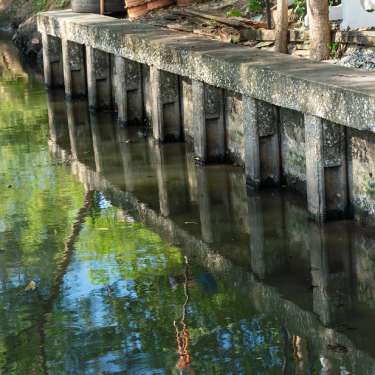
Water contamination is an issue that plagues urban areas worldwide. It affects the population’s health, disrupts ecosystems, and imposes economic burdens. Urban planners are crucial in minimizing water contamination as they implement strategic measures. Urban planners and environmentalists use some of these strategies to minimize water contamination around cities.
Monitor Proper Waste Disposal
Proper waste disposal is key for preventing water contamination. Urban planners must ensure that waste management systems are efficient and effective to keep waste out of nearby water sources. Regular monitoring and strict enforcement of waste disposal regulations can significantly reduce the risk of pollutants entering water bodies.
Educating the public about the importance of proper waste disposal can foster community involvement in keeping water sources clean.
Practice Sustainable Agriculture
Sustainable agriculture practices are vital in controlling water pollution originating from agricultural activities. Urban areas and their water sources may interface with agricultural lands, making it essential for urban planners to encourage sustainable farming techniques.
Implementing buffer zones, reducing pesticide use, and promoting organic farming can minimize the contamination of water sources. Collaboration between urban planners and agricultural stakeholders can help achieve long-term sustainability.
Prevent Infrastructure Corrosion and Deterioration
Infrastructure corrosion and deterioration can lead to water contamination. Rust and debris from aging pipes and structures can introduce harmful substances into the water supply. Even utility poles can contribute to water contamination through groundwater and other water sources.
Urban planners should prioritize maintaining and upgrading local infrastructure to prevent such issues. Utilizing corrosion-resistant materials and conducting regular inspections can ensure water system integrity.
Promote Public Awareness and Engagement
Public awareness and engagement are vital to any successful water contamination prevention strategy. Urban planners should implement educational campaigns to inform residents about the sources and impacts of water pollution.
Encouraging community participation in clean-up activities and water monitoring programs can foster a sense of responsibility and collective action. Community members can also practice small strategies in their homes to contribute to more sustainable water practices.
Minimizing water contamination around cities requires a comprehensive approach involving various strategies and stakeholders. Urban planners are critical in implementing these strategies to protect water sources and ensure sustainable urban development. By implementing these strategies, urban planners can significantly reduce water contamination and create more sustainable urban environments.
Bio: Casey is a passionate copyeditor highly motivated to provide compelling SEO content in the digital marketing space. Her expertise includes a vast range of industries from highly technical, consumer, and lifestyle-based, with an emphasis on attention to detail and readability.

























